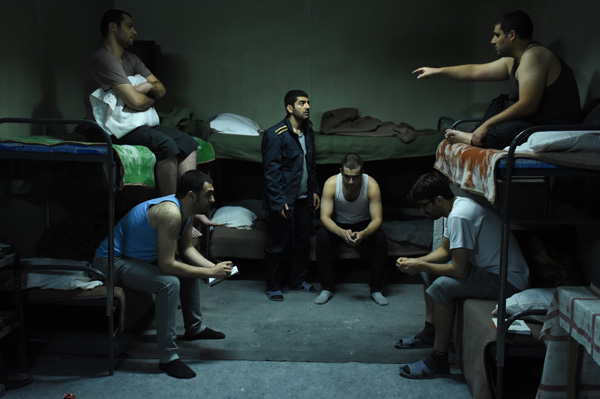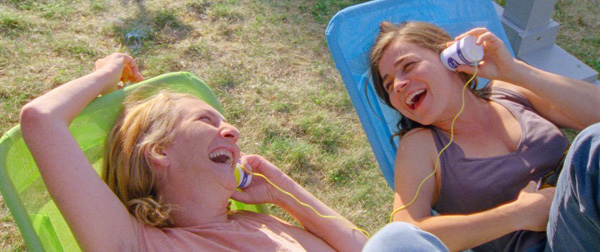Films Graded on Baselight Win Top Honours at Berlin Film Festival

At the 70th Berlinale, the 2020 Berlin Film Festival held from 20 February to 1 March, the Golden Bear was won by ‘There is No Evil’, directed by Mohammed Rasoulof, and the Silver Bear special prize went to ‘Delete History’, directed by Benoît Delépine and Gustave Kerven. Both movies received detailed grading and finishing completed on Baselight, while the stories of each one could scarcely be more different.
The director of ‘There is No Evil’, Mohammed Rasoulof, has been unable to leave Iran, which made it necessary to shoot the film in episodes with strict authorisation for each one. It also posed a challenge during finishing for Jochen Hinrichs-Stöldt, senior colourist at Optical Art in Hamburg and Berlin, as Rasoulof could not join the finishing sessions. This meant it fell to the DoP to oversee the final look.
The project is a collection of four standalone films that approach the subject of Iran’s death penalty from different directions, and becomes an intensely personal look at moral strength.
Complex Stories
“The first episode starts with a natural look but ends in a shocking climax, which we amplified with the grade,” said Jochen. “The second starts in despair but ends happily, and we supported this with a colour journey from cold to warmer colours. These warmer tones started the third episode, with the fourth concentrating on the desolation of the characters underlined by desert colours.”
The acceptance of the movie for the Berlinale competition meant the time schedule was very tight, and the grade had to be finished in just 11 days.

“I needed almost all of the tools provided by Baselight, with particular use of Base Grade and Film Grade to lay the foundation, together with shapes, keys and mattes,” Jochen said. “There were a lot of composite grades and some very long takes with a huge number of dynamic changes, so the layer blending in Baselight was essential to ensure consistency and continuity.” Strip naming was also useful for organising – Baselight uses a series of bars in the timeline called strips to indicate which corrections have been applied to which clips.
The film also had a large amount of VFX work to integrate. Jochen said, “Most of the visual effects were created in-house at Optical Art, although some were delivered from Iran, so we introduced an EXR workflow for the VFX. We also made the decision to fix some minor problems – like rattling doors or microphones protruding into the frame – within the session.”
Jochen began his career as a photographer, also working as a cinematographer, editor and producer before moving into colour grading. He has worked on the Baselight system now for 12 years and finished over 200 national and international movies, so he understands the pressures involved on a project such as this one. “Thanks to the clear vision of the crew at the grading session, we were able to complete the task within the available time,” he said. “This made the movie a joy to grade.”
16mm Film
With a lighter theme, ‘Delete History’ (‘Effacer l’Historique’) is a French comedy drama in which three social media victims declare war on the tech giants. That simple premise is the foundation for an outspoken exploration of the absurdity of our social media-obsessed world. The directors took the project to Color in Paris for finishing.

“The directors wanted to return to film to find a more raw image,” said colourist Julien Bodart. “We did tests in 35mm and 16mm, and they found the rendering of the 35mm too close to a digital camera image. However, the 16mm corresponded perfectly to their desire for analogue granularity.
“This is the third movie I have graded for Benoît and Gustave,” he said. “We always work with the cinematographer on the tests to set the initial ideas, then at the time of the final grade we look at the consistency of our choices, see what works and where we need to do better. FilmLight’s colour management is a great foundation - the Base Grade tool with its different pivot points and flare brought me a lot on this project.”
The exposure values and pivot points are specified in regular aperture stops, which are understood by photographers and DPs, and imitate human perception. Four parameters affect the whole image - flare, balance, contrast and saturation - and the Base Grade operator partitions the image into brightness zones that can be fine tuned with a pivot point that the user defines in stops relative to medium grey. By changing the pivot point you can achieve more subtle adjustments in specific areas. www.filmlight.ltd.uk



